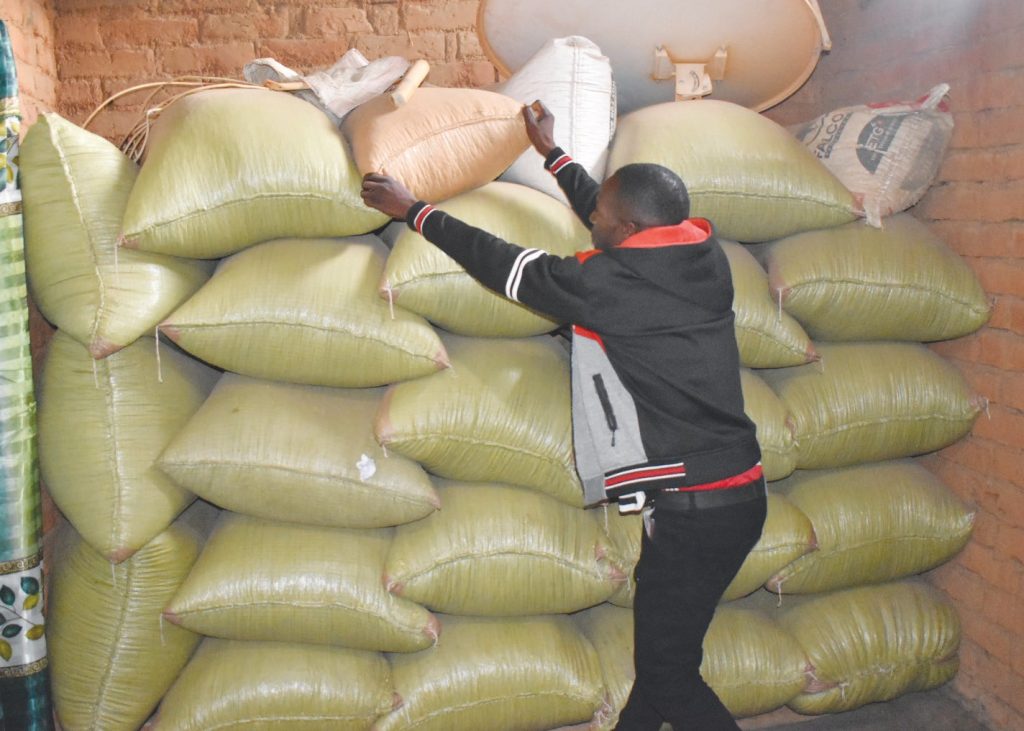From poverty to productivity
Blessford Msukwa of Mwenemuyombe Village, Senior Chief Mwabulambya in Chitipa District, struggled to support his family.
The 58-year-old father of seven wallowed in poverty as he survived on piecework in his neighbourhood at the foot of Mafinga Hills.

“I used to break my back for a wage that couldn’t even buy two meals a day,” he recalls. “My children lacked basic needs.”
In 2020, the family of nine was among the 50 ultra-poor households in his rural community selected for Climate Smart-Enhanced Public Works Programme designed to conserve the environment and reduce poverty. The World Bank funds the safety net programme in which the target households get money for doing land and water conservation interventions in their communities.
Msukwa’s family started receiving K28 000 after working for 24 days.
“This supplemented the income from piecework. For the first time in many years, we could afford three meals a day and meet our pressing needs,” he says.
The beneficiaries were introduced to Community Savings and Investment Promotion (Comsip) groups, where members receive training in team building, financial literacy, saving culture, entrepreneurship and business management.
They established Nkhumano Comsip Cooperative to save part of their earnings and obtain soft loans for small-scale businesses.
To fast-track and help the recipients graduate from poverty, Comsip Cooperative Union Limited in 2022 embarked on a Livelihood Support Programme, which provided each household with K300 000 as capital for their profitable businesses. This is part of the Malawi Social Support for Resilient Livelihoods Project.
Msukwa started buying local chicken from Nthalire, almost 115 kilometres from Chitipa Boma, for sale in neighbouring Tanzania.
He says: “I made K550 000 within four months. My profit was more than K250 000.
“I continued the chicken business with K200 000 capital and I bought three dairy cows at K270 000 to diversify my income sources.”
The man can now afford a smile.
“These ventures provide enough money for my family’s needs, including school fees for my two children now in technical colleges,” he says.
The proceeds also helped the family acquire peacocks and goats.
He plans to modernise his four-bedroom house this year.
Similarly, Ronald Msukwa says the social protection initiative is a gift that keeps giving. He sells farm produce such as maize, beans and groundnuts at Chitipa Boma, where many people are grappling with hunger.
“I’m a proud breadwinner unlike before,” he says. “This initiative has made me more productive and financially secure than I ever imagined.”
Counting his blessings, the father of three adds “I earned K610 000 from groundnut sales and K560 000 from beans.
“The money was more than enough for my household’s needs, so I used the savings to acquire valuable assets.”
He has built a four-bedroom house roofed with corrugated iron sheets.
Ronald expects to make more than K2.5 million from selling beans and groundnuts in the current lean period.
Nkhumano Cooperative chairperson Chimwemwe Simfukwe says Comsip interventions, including the seed capital, have been crucial to poverty reduction.
“All 51 members of the cooperative have modern housing,” he states.
According to treasurer Luwe Kapenda, the group has generated K12 million from selling maize and groundnuts.
“The communal earning helps members boost their household business capital when needed,” she says.
Group village head Chendo attributes the waning poverty and growing enterprising spirit to team play promoted by Comsip interventions.
“The trainings help the people to embrace team spirit as well as proper ways of managing money and doing businesses that are paying off through improved lives,” he says.
Chitipa district community development officer Haddy Mulenga says the initiative to help households that wallowed in poverty graduate into productive and prosperous citizens could be a sustainable game changer when it comes to empowering communities to end poverty.
“They were given seed capital and trained to do profitable businesses. There is no excuse to fight against poverty because people are poised to win,” he says.
Comsip development communication officer Mercy Kayuni says they are committed to helping those households with zeal to develop.
She says: “The package was meant to empower them to be self-reliant and sustain their livelihoods to get out of extreme poverty and we are pleased the objectives are being met.”





